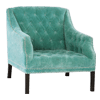Faucets with Built-in Water Filters: Are They Worth It?
浏览次数:513 分类:Blogs

In today’s world, clean, safe drinking water is more important than ever. Many households are opting for faucets with built-in water filters to ensure they’re getting the best water quality possible directly from the tap. These faucets combine the convenience of a high-functioning kitchen or bathroom faucet with the benefits of a water filtration system. But are they worth the investment? This post will break down the pros and cons of faucets with built-in water filters, helping you decide if one is right for your home.
What is a Faucet with a Built-in Water Filter?
A faucet with a built-in water filter is a two-in-one fixture that not only allows you to control the flow of water but also filters it as it passes through. These faucets are equipped with an integrated filtration system that reduces or eliminates common contaminants found in tap water, such as chlorine, lead, heavy metals, bacteria, and sediments. Depending on the model, these faucets may have different types of filters, such as carbon filters, reverse osmosis, or ceramic filters, each targeting different types of impurities.
Some models include an easy-to-use switch or lever that lets you toggle between filtered and unfiltered water, allowing you to choose the type of water you need. This feature is particularly convenient for households that want filtered water for drinking and cooking but prefer unfiltered water for tasks like washing dishes or cleaning.
Pros of Faucets with Built-in Water Filters
-
Convenience One of the biggest advantages of faucets with built-in filters is the convenience factor. Instead of having to buy bottled water or install a separate water filter system that takes up additional counter or cabinet space, you can get fresh, filtered water straight from your faucet. This setup eliminates the need for clunky pitchers or countertop water filters and reduces clutter in your kitchen or bathroom. Plus, you don’t need to worry about changing filters in multiple places—everything is integrated into the faucet itself.
-
Cost-Effective in the Long Run While the upfront cost of faucets with built-in water filters may be higher than standard faucets, they can save you money over time. If you currently rely on bottled water or separate filtration systems, switching to a faucet with a built-in filter can cut those ongoing expenses. For example, bottled water costs add up quickly, and a high-quality filtration system can be costly to replace or maintain. By switching to a faucet with a filter, you’re investing in a long-term solution that minimizes ongoing costs.
-
Space-Saving Design If you have a small kitchen or bathroom, the space-saving nature of a faucet with a built-in filter is a game-changer. Traditional water filtration systems, like pitchers or countertop units, require valuable space on your counter or in your cabinets. A built-in filter faucet is an all-in-one solution that frees up space while providing filtered water whenever you need it. This is especially helpful in smaller homes, apartments, or for people who simply want a more streamlined, minimalistic kitchen.
-
Better Water Quality Faucets with built-in water filters generally provide better water quality than standard faucets. Most tap water contains contaminants like chlorine, heavy metals, and bacteria that can affect both taste and health. Having a built-in filter helps reduce or remove these impurities, providing you with cleaner, fresher, and safer water. Depending on the type of filter in your faucet, it may be capable of removing a wide range of harmful substances, including:
- Chlorine: Which can cause an unpleasant taste and odor in your water.
- Lead: Particularly a concern in older homes with aging plumbing.
- Sediments: Such as sand, dirt, and rust that may be present in your water.
- Pesticides and herbicides: From agricultural runoff, which can seep into water supplies.
- Bacteria and viruses: That may be present in untreated water sources.
-
Environmental Benefits Using a faucet with a built-in filter can also help reduce your environmental impact. By cutting down on bottled water consumption, you’re reducing plastic waste. Many people are unaware of the environmental toll of single-use plastic bottles, which contribute to pollution and landfill issues. Having filtered water directly from the tap eliminates the need for bottled water, which is a simple but impactful step toward a more sustainable lifestyle.
-
Ease of Installation Depending on the model, many faucets with built-in filters are easy to install and require minimal plumbing knowledge. Some models offer DIY installation that can be completed without a professional plumber, making it a more accessible option for homeowners looking to upgrade their faucet without the added cost of professional installation. Of course, more complex systems may require professional help, but for many, installation is straightforward and manageable.
Cons of Faucets with Built-in Water Filters
-
Initial Cost One of the main drawbacks of faucets with built-in filters is the initial cost. While they can be more cost-effective over time, they typically have a higher price tag than standard faucets, especially if you opt for a high-end model. Depending on the type of filtration system used and the faucet design, prices can range from $100 to several hundred dollars. This initial investment may not be feasible for everyone, particularly if you’re working with a tight budget.
-
Replacement Filters Can Be Expensive Although you may save money on bottled water in the long term, the filters used in these faucets do need to be replaced regularly—usually every 3 to 6 months, depending on water usage and the specific model. These replacement filters can be expensive, particularly for higher-end filtration systems. Over time, the cost of replacing filters can add up, so it’s important to consider this ongoing expense when deciding if a built-in water filter faucet is right for you.
-
Limited Filtration Capacity While faucets with built-in filters do a great job at improving water quality, they may not be as powerful or comprehensive as whole-house filtration systems or advanced water treatment systems. Some filters may only target specific contaminants, so if you live in an area with highly contaminated water or have specific filtration needs, you might require additional filtration solutions to ensure the water is as clean as possible. If you’re looking to filter water for the entire house or have highly specialized needs (like reverse osmosis), a faucet with a built-in filter might not be sufficient on its own.
-
Filter Maintenance Although built-in filters are generally low-maintenance, they do require attention. You’ll need to keep track of when the filter needs to be replaced, and neglecting this task could lead to reduced filtration efficiency or, in the worst case, a buildup of bacteria in the filter itself. Keeping up with regular maintenance is essential to ensure the faucet continues to provide clean, filtered water.
-
Not Suitable for All Water Types Depending on your local water quality, a faucet with a built-in filter may not meet your specific needs. For instance, if you have extremely hard water or water that’s heavily contaminated with industrial chemicals, a standard faucet filter may not be enough to address those issues. It’s important to know what’s in your water before choosing a filter.
Are Faucets with Built-in Water Filters Worth It?
Faucets with built-in water filters can be a great investment if you’re looking for a space-saving, convenient way to enjoy filtered water straight from your tap. They offer significant benefits, such as improved water quality, reduced bottled water waste, and easier maintenance compared to traditional filtration systems. However, they also come with a higher upfront cost, regular filter replacements, and potential limitations depending on your water needs.
Ultimately, whether a faucet with a built-in filter is worth it depends on your specific requirements and budget. If you value convenience and clean, great-tasting water without the hassle of installing a complex filtration system, these faucets may be an excellent choice for you. But if you’re looking for a more comprehensive water filtration solution, you might want to explore other options, such as reverse osmosis systems or whole-house filters.
In conclusion, if you’re ready to make the switch, carefully research the model that best fits your needs and water quality, and be sure to factor in the cost of replacement filters. With the right faucet and filter combination, you can enjoy fresh, purified water directly from your tap for years to come.
 Kes Faucets
Kes Faucets










您好!请登录